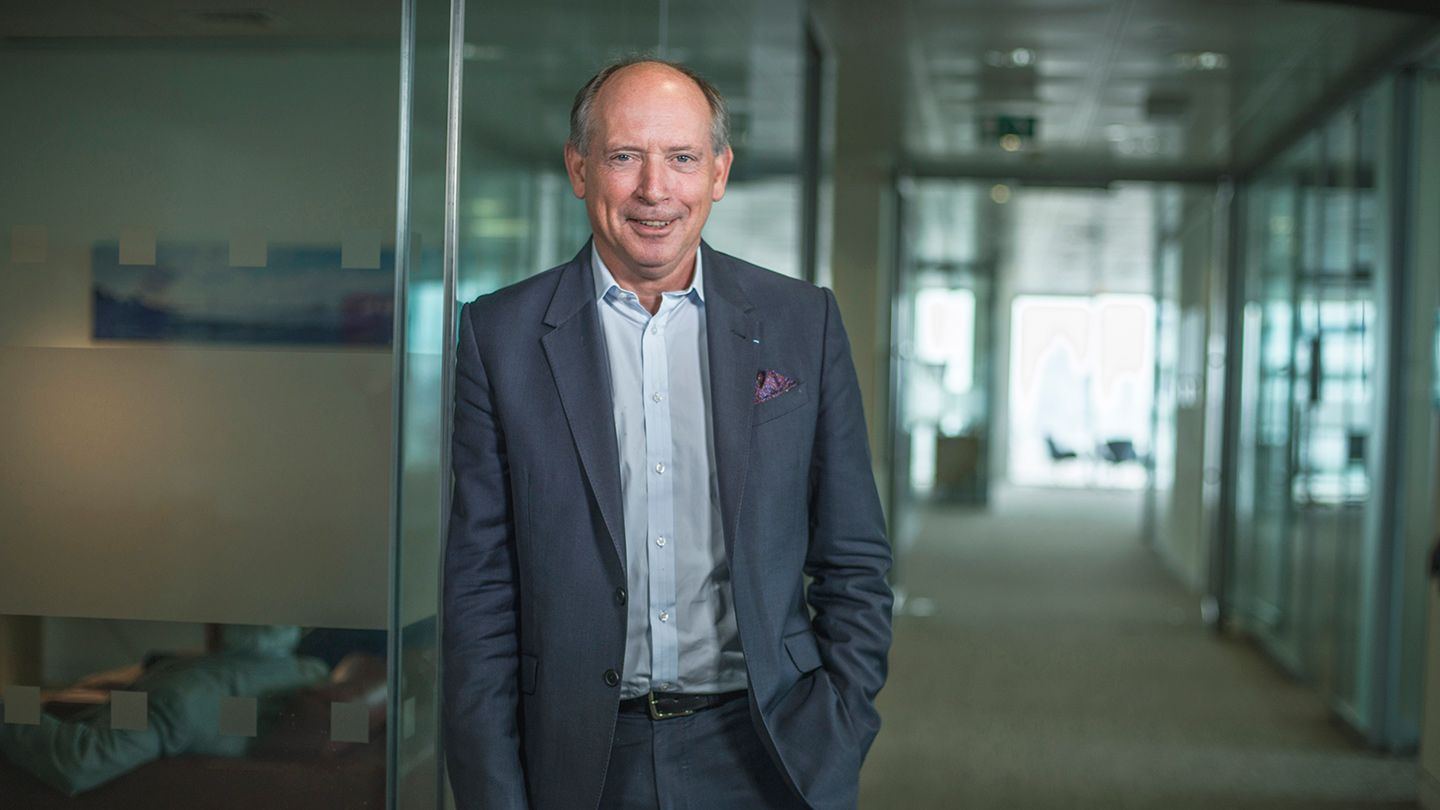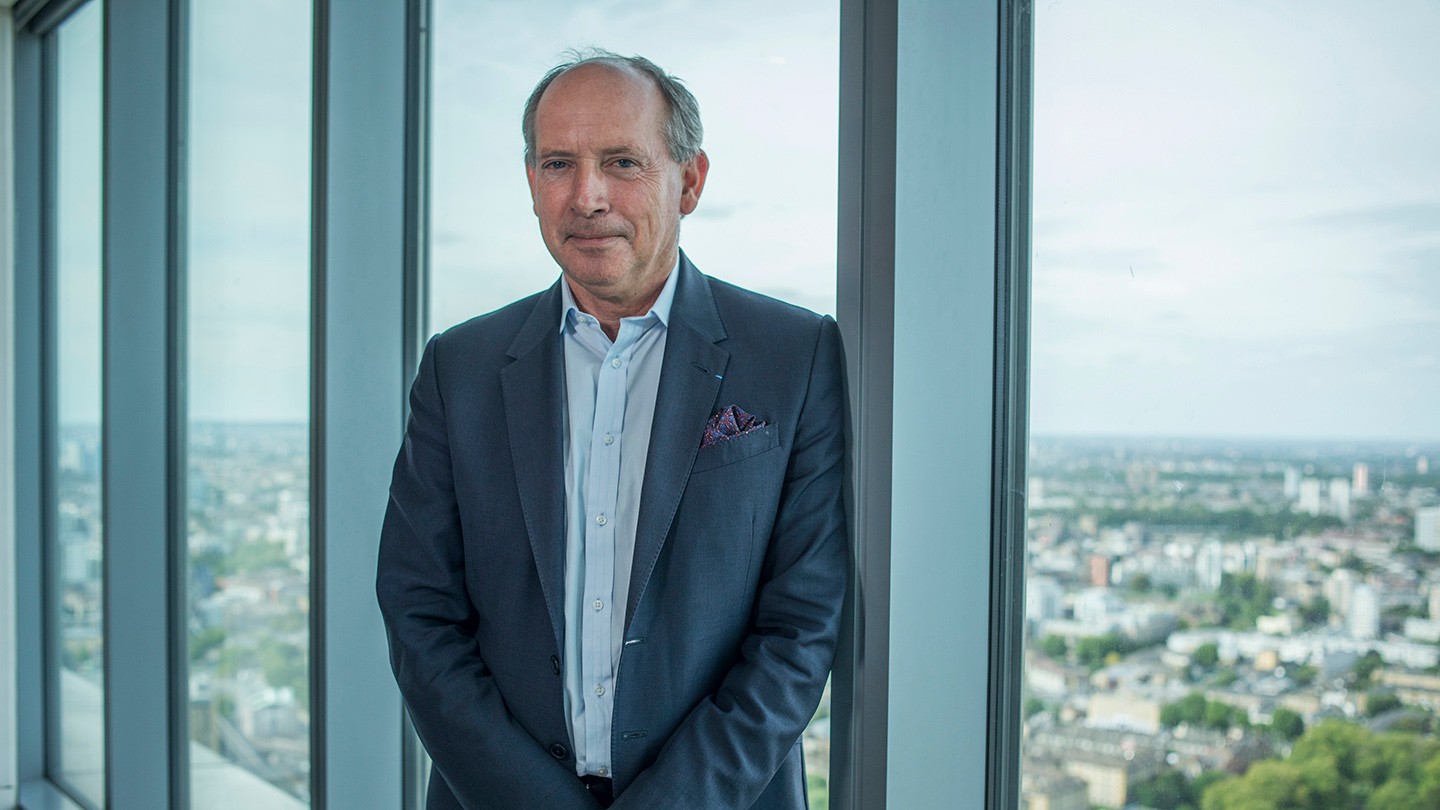
Leadership
Leading Questions: Sir Ian Cheshire
Sir Ian Cheshire is the Chairman of Barclays UK, the ring-fenced subsidiary of Barclays Group, and the former CEO of retailer Kingfisher plc. He reveals the leadership lessons he’s accumulated in a career that’s moved from sawmill to boardroom, why Liverpool manager Jürgen Klopp is his hero – and how raising alpacas is the best therapy.
What was your early work experience?
My first proper paid job – during my first holiday at university – was at a sawmill in Kent, in the cold, and that is a great reminder of how long it takes to earn a fiver.
What other valuable lessons did you learn from your early career?
The thing I learned most – and this may be with the benefit of hindsight – was the value of doing a wide variety of things early on. Try things out to see what you like and where you find some energy, and that gives you a clue as to how you might want to develop your career, because the idea that you know what you want to do when you’re 21 or 23 seems to me pretty unlikely.
What makes a good leader?
I think the key to being a leader is assembling great teams. All leaders are only as good as their teams. If you can learn how to find and develop a team, then ultimately what a leader can do is help the team succeed and create the conditions for others to succeed.
What characteristics do you look for when recruiting leaders?
Leaders do come in various shapes and sizes and, depending on the type of leader, you need to adapt the team beneath them to make sure the other talents are there. But there are two things I’ve always seen in the good leaders I’ve worked with: one is genuine commitment to the team and the task – they’re not in it for themselves, they’re in it to make it a success. And the second is a humility to want to work with other people to achieve something. So, the desire to put together the best possible team and to work with them is the thing that typically comes out, and you can tell fairly quickly whether someone is just doing it for their own sake or for the greater good.
How do you bring people aboard and navigate the politics when you move organisations?
When you arrive in any new situation, you’ve got to have worked out what you’re trying to achieve and where your value-add is – as opposed to doing other people’s jobs for them. People who land in any form of new situation need to spend more time listening and less time talking, and then co-develop agendas about what you’re going to do and why those are the right priorities – and that process of working together will tend to get you into the right place. Don’t come in from the outside with some ready-made answer and think you know better than everyone else – that is almost invariably a recipe for disaster.
Is there a colleague who has particularly influenced you in your career?
I had a couple of early mentors in my career. Archie Norman, who ran Asda, was one – for his strategic thinking. And I had a partner in a retail consultancy – Crispin Tweddell – who taught me to think more about the customer than anything else. I think what’s interesting about both of those is they didn’t tell me exactly what to do so much as how to think about something and then apply it. Those lessons – to bring your own approach and think about things in terms of the business model and above all else the customer motivation angle – have stuck with me for ever.
Are there leaders in the business or wider world that you particularly admire?
I’ve seen a lot of different impressive leaders in many areas over the years. As a Liverpool supporter, I’ve got a major soft spot for Jürgen Klopp, who I think is a genius and the sort of person that you’d love to work with. The leader who in some ways impresses me most, but who I wouldn’t have wanted to work for, was Steve Jobs. But you can learn from all different styles of leadership.

What was the best day of your working life?
My first day as the CEO of Kingfisher, knowing this was a FTSE 100 company and a company I’d worked with a long time, and knowing I’d been given the privilege of leading it. And that lasted for about half an hour, because this was in 2008 and we were just facing into the major meltdown – so it was a great feeling for about thirty minutes and I really enjoyed it, and then it was down to seven years of hard work.